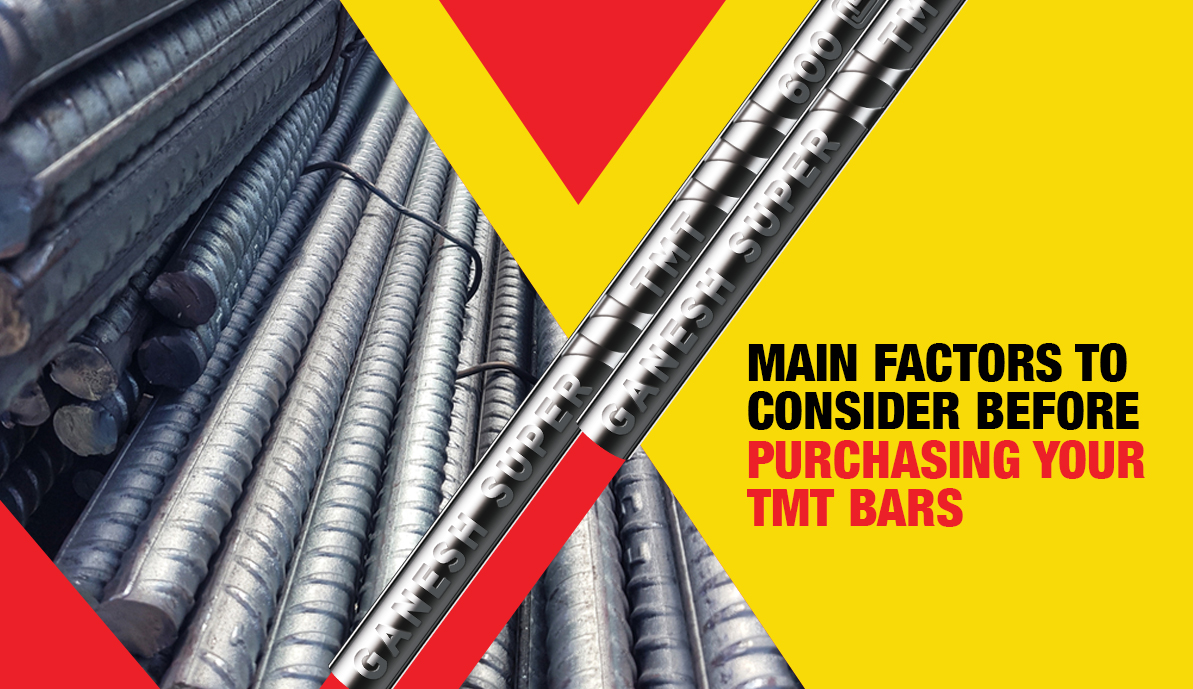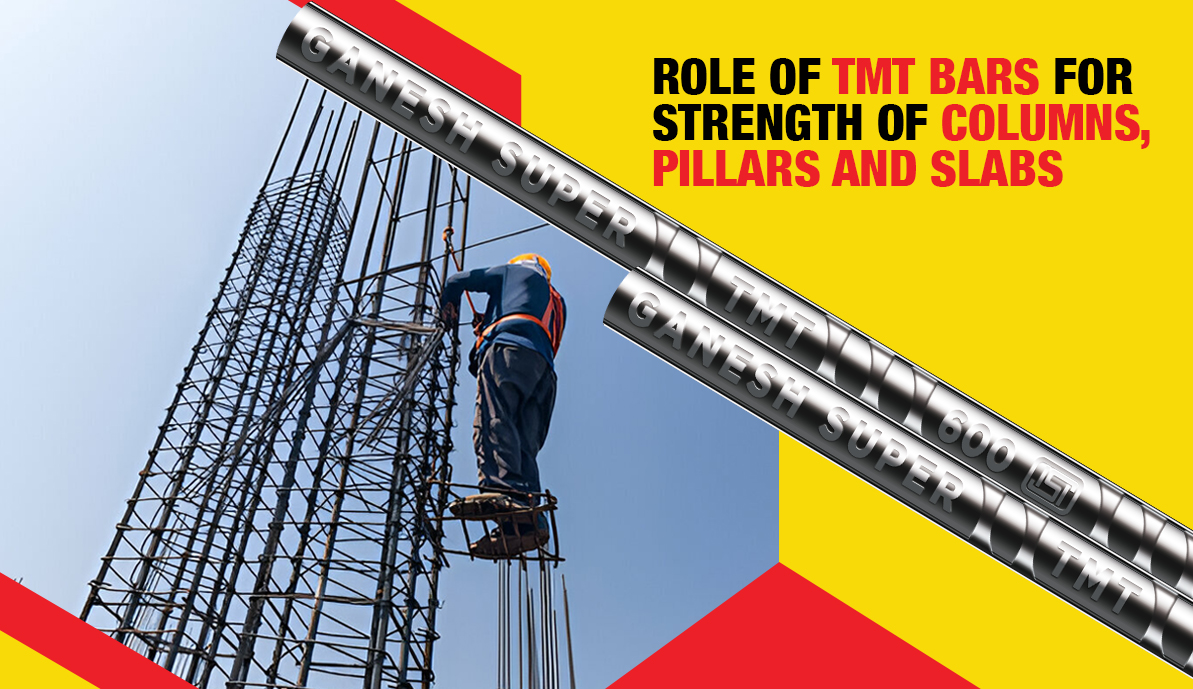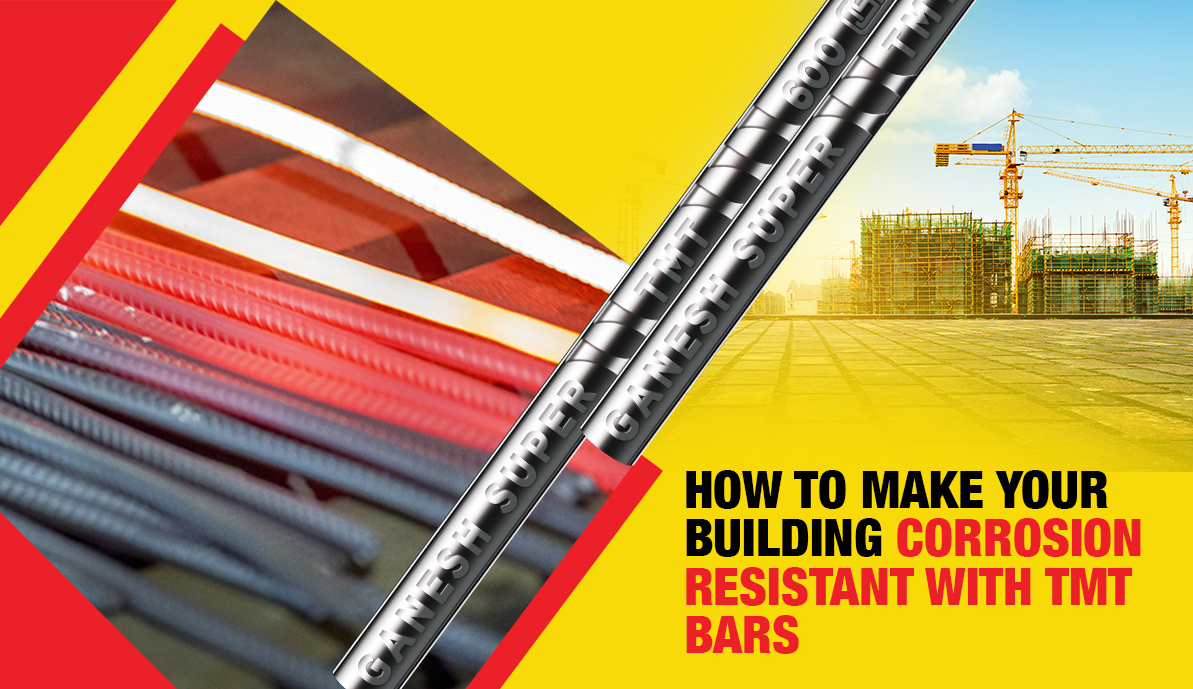TMT bars are categorised into four variants — Fe 415, Fe 500, Fe 550, and Fe 600 — based on their tensile strength and other properties such as flexibility. Fe 500 and Fe 550 grade TMT bars are the most commonly used due to their balanced strength and flexibility. This blog will explore the differences between the chemical composition, mechanical properties, and applications of Fe 500 and Fe 550 grade TMT bars.
Fe 500 Grade TMT Bar
Fe 500 bars manufactured by the best TMT bar companies are one of the most commonly used grades of TMT thanks to their toughness and ductility. Let’s take a closer look at their mechanical properties, specifications, and applications.
Chemical Composition
The numeral 500 shows the minimum yield strength of the TMT bars in N/mm2. This was achieved with a precise chemical composition of Iron with 0.3% Carbon, 0.055% Sulphur, 0.055% Phosphorus, and 0.105% of S+P.
Mechanical Properties of Fe 500 Grade TMT Bars
The yield strength (fy) of Fe 500 grade TMT bars is 500N/mm2, with its ultimate tensile strength (fu) coming to 545 N/mm2. An elongation of 12%, Tensile Strength/Yield Strength ratio of 1.09, and corrosion resistance properties means that TMT bars suppliers frequently supply Fe 500 TMT bars for the construction of multiple-storey and commercial buildings.
Applications
Fe 500 grade TMT bars are applied in a wide range of residential and construction projects, including multi-storeyed buildings, business complexes and private ventures due to their high yield strength. However, they are less ductile compared to Fe 415 grade TMT bars.
Fe 500 grade TMT bars are regarded as a standard in the market for a wide range of construction projects. Best TMT bar companies provide rebars with superior stability and security, making them an excellent choice for earthquake-prone areas.
Fe 550 Grade TMT Bar
Fe 550 grade TMT bars are a high-grade alloy steel rebar that is prized for their high tensile strength and hardness. Fe 550 TMT bars are ideal for industrial construction thanks to their superior strength.
Chemical Composition
Fe 550 TMT bars have a minimum yield strength of 550 N/mm2 achieved by mixing various elements in precise measurements. Iron is mixed with 0.25% Carbon, 0.04% Sulphur, 0.04% phosphorus, and 0.07% S+P to create this grade of TMT bars.
Mechanical Properties of Fe 550 Grade TMT Bars
Fe 550 TMT bars have yield strength (fy) of 550N/mm2 and an ultimate tensile strength of 585 N/mm2. They have an elongation rate of 16% and a Tensile Strength/Yield Strength ratio of 1.08. As they are highly compatible with large-scale projects like bridges and the construction of heavy underground structures, TMT bar suppliers face a high demand for Fe 550 TMT bars. Fe 550 grade TMT bars’ ductility and flexibility comply with IS 1786.
Applications
The superior tensile strength of Fe 550 grade TMT bars makes them highly suitable for construction projects such as mechanical undertakings, scaffolds and other structures that need to withstand a lot of weight.
Thanks to their highly corrosion-resistant properties, they also find application in underground, marine, and beachfront construction projects.
Conclusion
Fe 500 and Fe 550 grade TMT bars are the most commonly used grades of TMT bars thanks to their high tensile strength, yield strength, ductility, and corrosion resistance. This blog details the differences in their chemical composition. By understanding these differences, you can make a better decision regarding the TMT bars you use in your construction projects. Ganesh Super is ranked among the best TMT bar companies in India. You can contact us to procure high-quality TMT bars.





